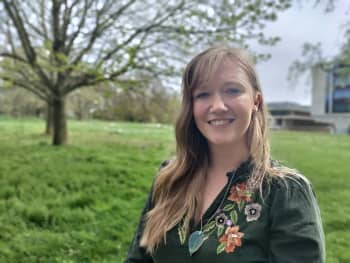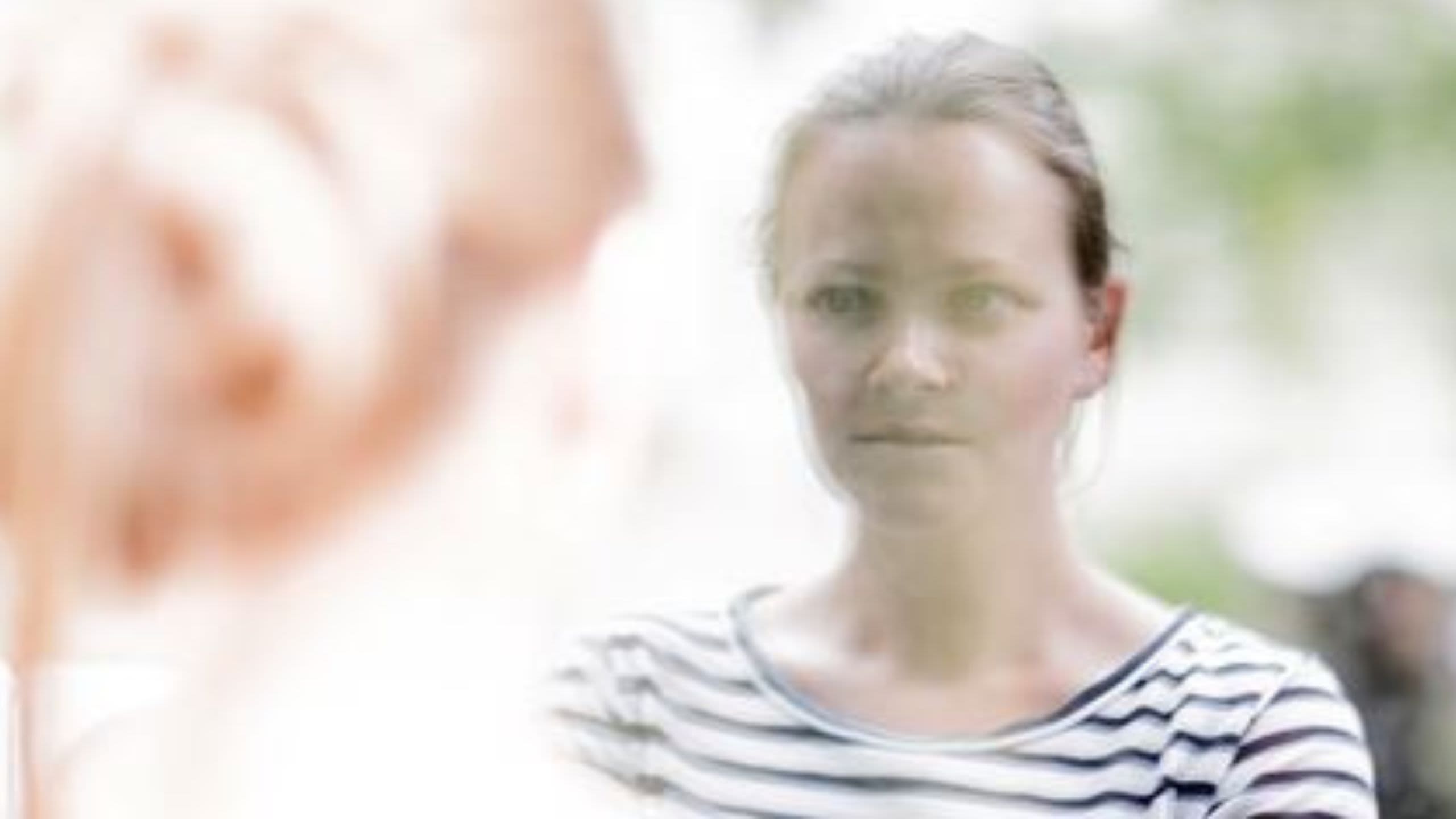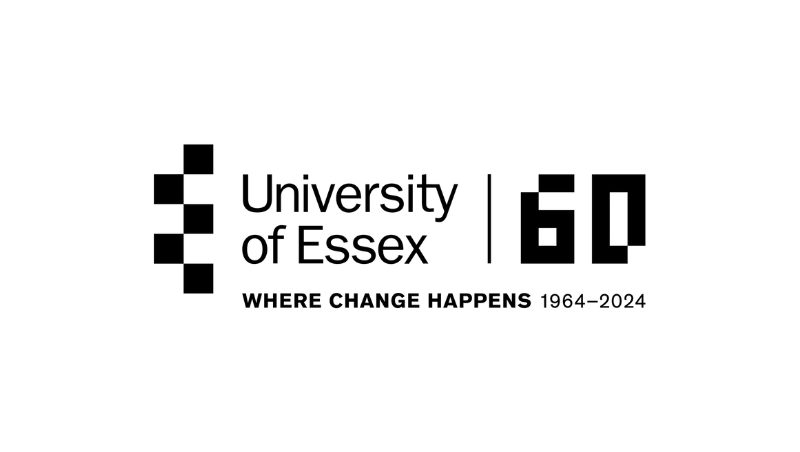Training counsellors of the future

The number of people struggling with mental health issues is on the increase and services are stretched.
We're training a growing group of counsellors who are working in this vital field – some setting up their own therapeutic practices or helping to train future students.
Over the past 10 years, more than 100 students have become professionally qualified counsellors. In the next three years another 100 will join them – making a bigger and bigger difference in their communities.
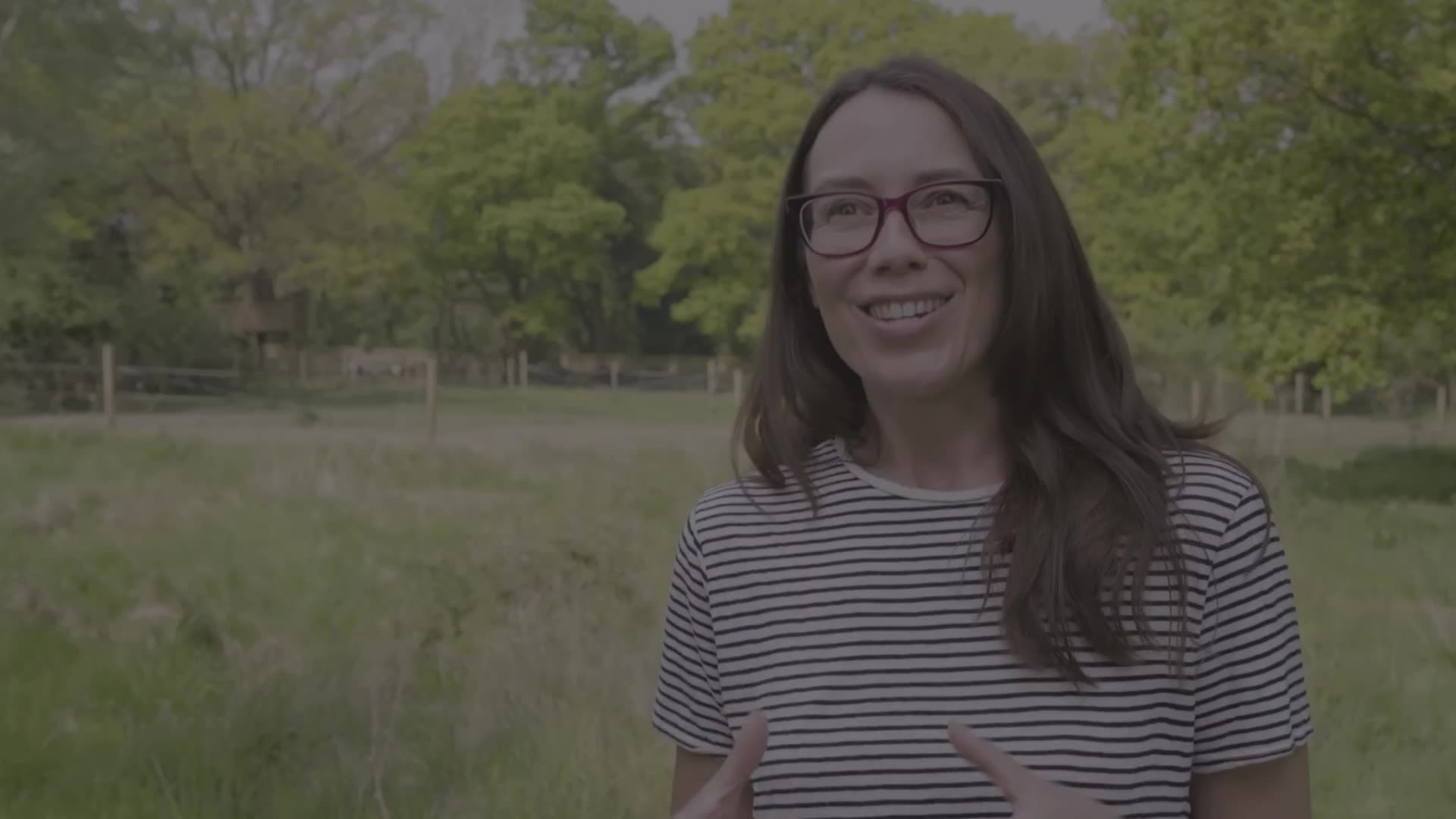
The challenge we face
The number of people with a mental health issue is on the rise.
In 2023, one in five children and young people (aged eight to 25 years) had a probable mental disorder.
And, we are told that one in four people in the UK will experience a mental health problem each year.
The statistics also reveal that over two million people in the country are waiting for NHS mental health services and in the last seven years the number of young people struggling with their mental health has nearly doubled.
Rising to the challenge
In response to this growing need, the University of Essex runs a course which is training a new generation of fully qualified therapists.
It’s a qualification accredited by the British Association of Counsellors and Psychotherapists (BACP), which is the leading professional association for members of the counselling profession.
And the Masters in Psychodynamic Counselling and Psychotherapy course, delivered by the Department of Psychosocial and Psychoanalytic Studies, is quietly making a very big impact on our communities and attracting a growing number of students.
In a nutshell, psychodynamic counselling helps you to understand how your feelings and behaviours are shaped by your past experiences and your unconscious mind and impulses. It is often referred to as a 'talking therapy' and is about getting to the root of problems to create long-term change.
The Essex course was set up just over ten years ago by Professor Sue Kegerreis. When it began, there were just a handful of students (four in the first year). Now, each year group has over 30 students – the current second-year cohort is 49.
“Numbers were in their mid-teens until COVID and then they went up drastically,” explained Sue. “We had 45 during the first year of COVID, and the course was all online, which worked surprisingly well.
“We assumed the rise in applicants was a blip. We thought it was due to the situation – people were at home and reassessing their lives and their careers – and thought that numbers would go back down, but they haven’t, they are continuing to rise.”
The Masters course has two study options. It’s a three-year course for students who come to the subject fresh, while others start the degree in its second year after completing the undergraduate degree in Therapeutic Communication and Therapeutic Organisations (TCTO) at Essex or from a different counselling path.
Our students are having an amazing influence through their studies and placements, while our graduates are going on to have an incredible impact.

Amanda's story
Amanda Hitchin completed the BA in Therapeutic Communication and Therapeutic Organisations and then, after two years, returned to the University to study psychodynamic counselling. After finishing the course in 2022, she opened her own practice, Colchester Children’s Counselling, which is already going from strength to strength.
“In the short time since qualifying, the course has changed both my personal and professional life exponentially. After finishing my studies, I took the plunge and created my own working environment in the city centre, which has already expanded.
“So much else has happened. I have been nominated and commended for multiple awards, including Best New Business at the Colchester Business Awards, which has been an unexpected honour. I have been asked to join panel discussions, to guest lecture at the local college and at the University and was even asked to deliver training to Colchester United’s coaching team.
“I have been given many opportunities to use my skills to help others including working with local youth groups, doing radio interviews for the BBC, and I also work for a charity called The Transforming Autism Project, which provides specialist parent infant psychotherapy to families who are at the start of their understanding of autism.
“The course has allowed me to help the families and individuals who I support directly, as well as schoolchildren who I have worked with or delivered assemblies, talks and training to; under-represented and marginalised communities; and to those working directly with young people. Finally, with a podcast I have launched, I am able to reach a much wider audience to create mental health awareness and encourage support.
“None of my achievements have been more rewarding though than seeing clients make progress and move on – these are the secret wins that make my profession so rewarding and enriching.”
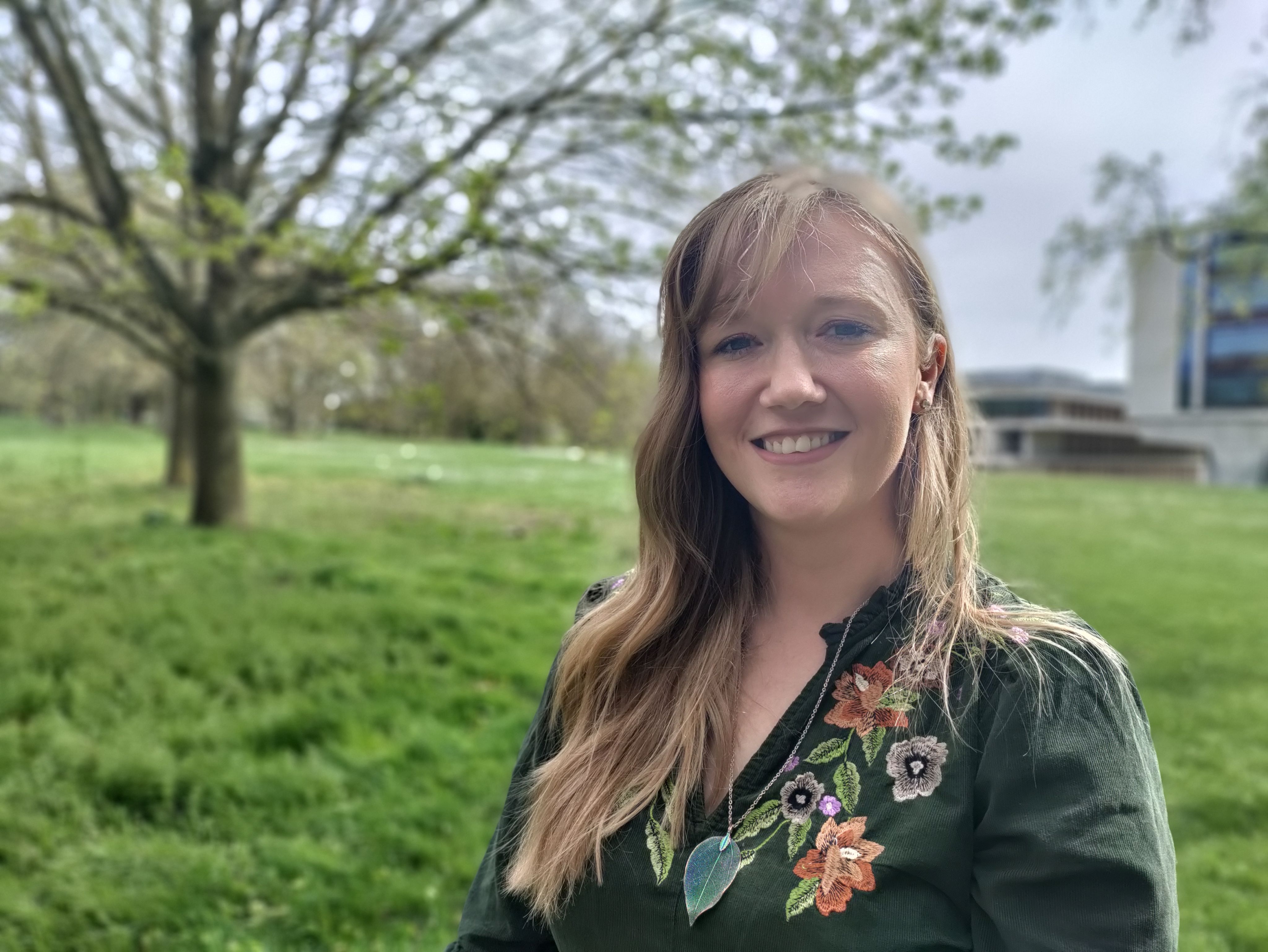
Kate's story
After completing her studies, Kate Beckwith set up her own pioneering therapeutic practice for children, adolescents, and their families. Set in a private woodland on the outskirts of Colchester, Kate’s Garden is the only practice of its kind in the country. It allows young people the chance to experience therapy in a setting which includes the indoors and out, and focuses on freedom of choice.
“The MA in Psychodynamic Counselling and Psychotherapy at Essex was a completely transformative experience that profoundly impacted my personal and professional life. It demanded deep introspection and rigorous engagement with complex theories through seminars, personal therapy, and placements. It gave me more insight into human behaviour, including my own, than I could have ever imagined. It really did change my life.
“After finishing the course, I set up my private practice for children, adolescents, and their families. It combines all my passions, skills, and interests – creating a therapeutic environment that utilises the outdoors, nature, art, animals, play, and most significantly, freedom of choice. My practice emphasises freedom and autonomy, which facilitates significant therapeutic outcomes.
“I’m committed to revolutionising child psychotherapy by promoting autonomy, the benefits of outdoor free play, physical activity, and nature’s healing effects. Through articles, podcasts, and public speaking, I aim to broaden the application and understanding of these elements within the field. I support and encourage therapists to adopt more accessible and creative approaches, enhancing psychotherapy practices and raising awareness about these essential factors in supporting children’s wellbeing more broadly.”
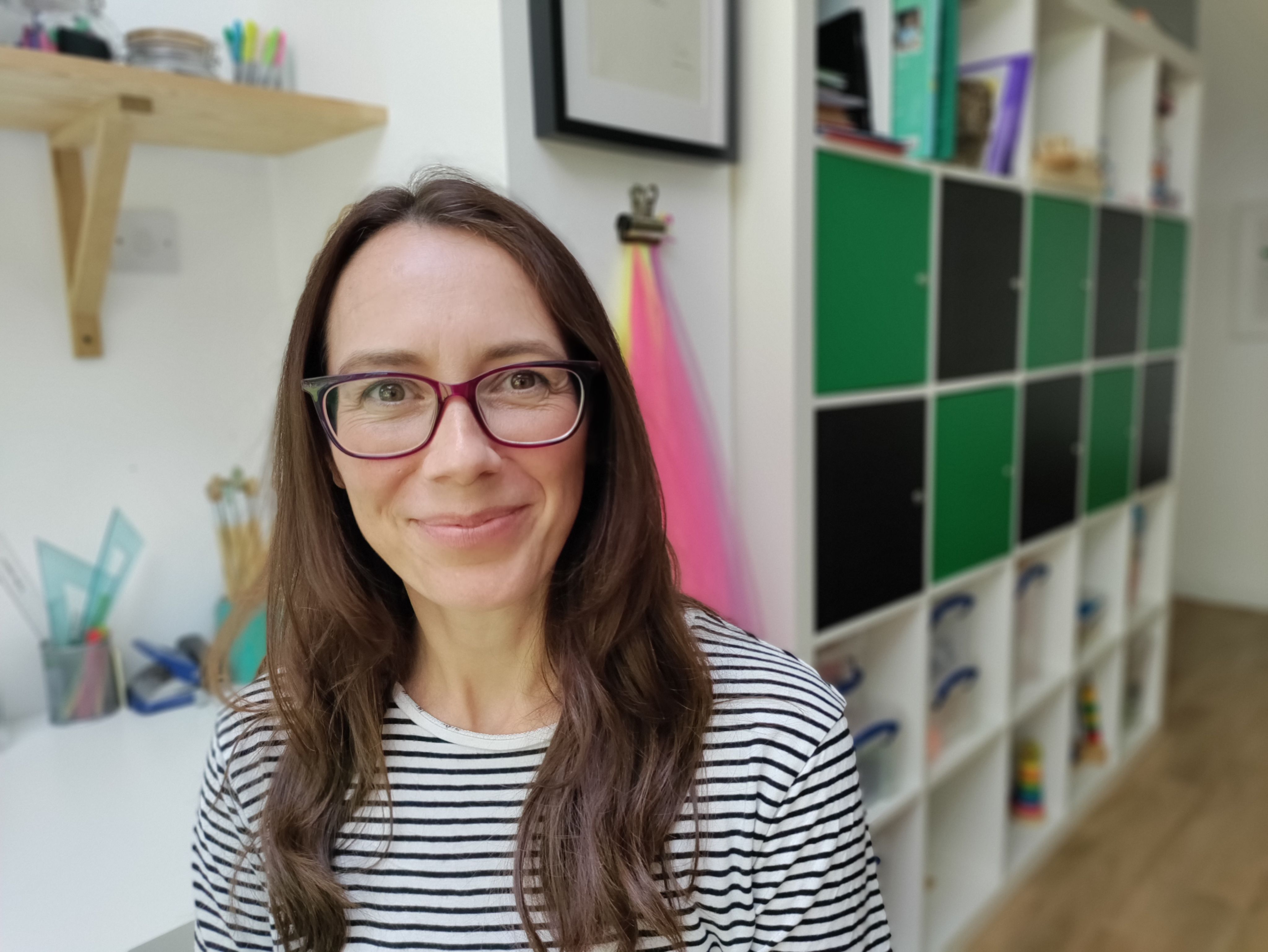
Fiona's story
Fiona Hannah qualified as a psychodynamic counsellor in 2018. Since then, she has set up a mental health service in Suffolk, which offers therapy for children and young people as well as training for both parents and professionals. Her team of over 20 staff include many who have completed, or who are currently studying, the MA Psychodynamic Counselling at Essex.
“As a mature student in my thirties, I completed an undergraduate degree in psychology at the University of Essex and then decided to take some time out and work for a few years before doing further study.
“During that time, I realised, due to life events, that I wanted to work in a therapeutic role rather than as a clinical psychologist so started to research relevant courses. I found that the course at Essex would give me the relevant knowledge and experience I needed to take up the role of a psychodynamic counsellor. It was also a familiar environment and close to home, so it was a win-win situation.
“After qualifying, I started my own not-for-profit private mental health service for children and adolescents called Teenage Mental Health in Suffolk. We have the capacity to see 400 children per week in an area where NHS resources for child and adolescent mental health support are stretched to breaking point, which means many vulnerable children and desperate families have to wait months before they even get an initial appointment. We can see patients almost immediately ensuring they feel heard and validated when they feel most vulnerable.”
Fiona is now doing the Professional Doctorate in Psychoanalytic Psychotherapy focusing on the therapeutic role dogs can play in psychodynamic counselling.
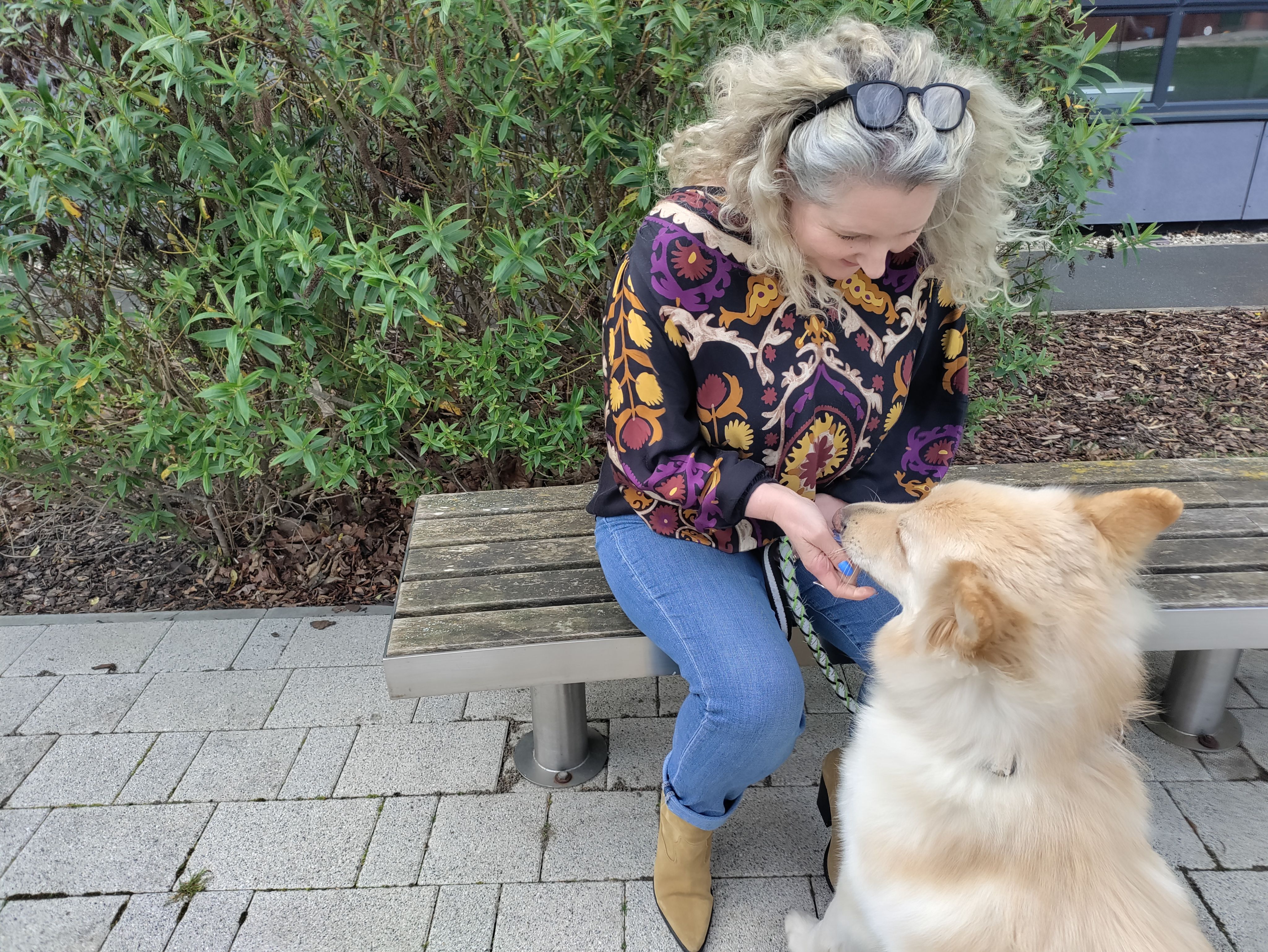
“We currently work with 75 local agencies. We have approximately 90 students on placement who are each providing at least three hours a week of counselling. That’s 270 client hours every week. So it's an ever-spreading network – accelerating every year in a really exciting way.”
Professor Susan Kegerreis
Department of Psychosocial and Psychoanalytic Studies
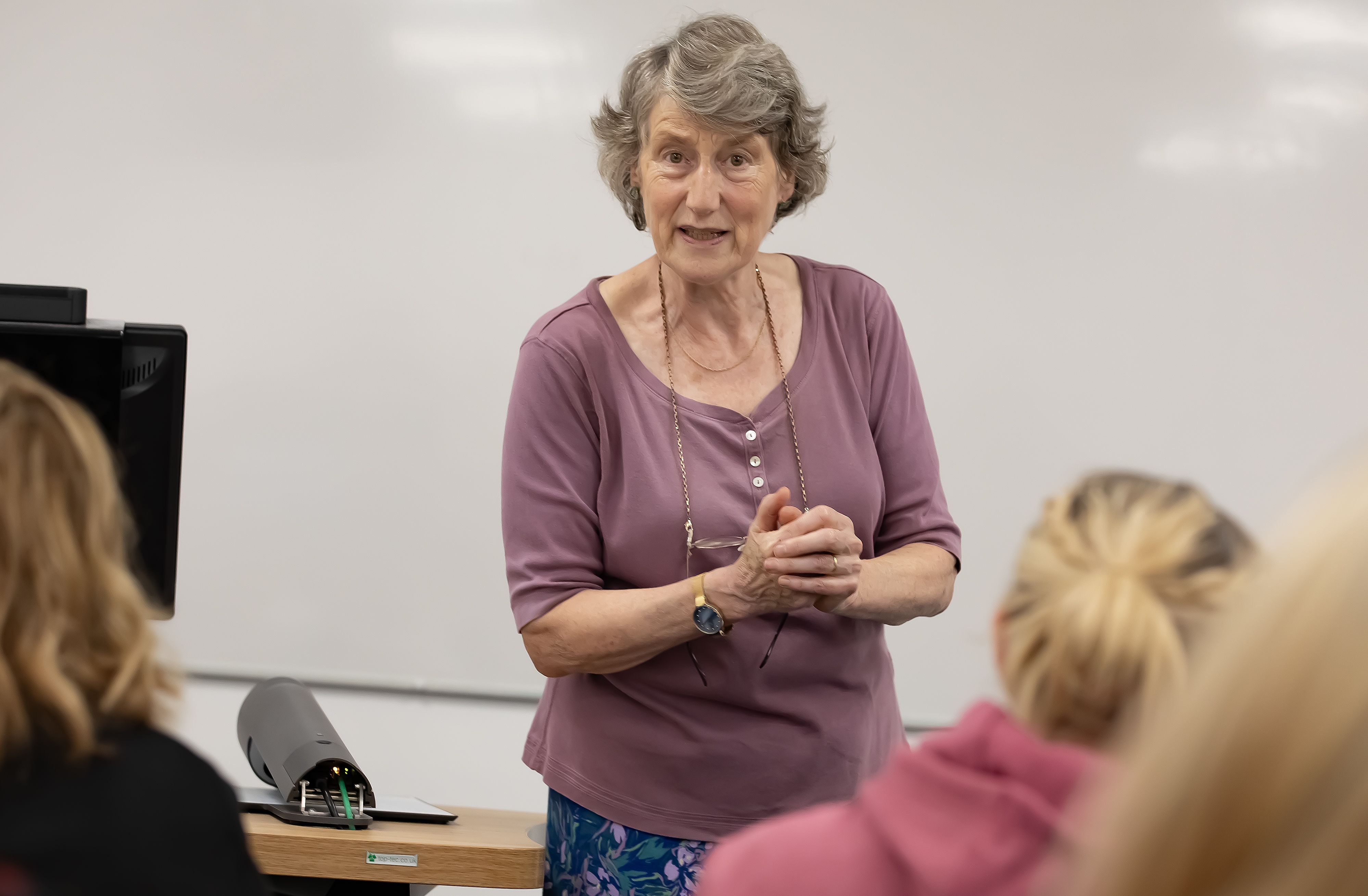

Developing a new approach at Essex
When Professor Kegerreis joined Essex in 2008, to take on the leadership of the Foundation degree in Therapeutic Communication and Therapeutic Organisations – which supports those already working in supportive roles in the community – she saw a need to provide a recognised qualification in counselling.
“It was clear to me that there was a need for a child and adolescent counselling course here at Essex,” she said. “There were several students who were working as support staff offering one-to-one work of great delicacy with quite troubled people, but they didn’t have a formal qualification or the status of a counsellor.”
Having qualified as a child psychotherapist at the renowned Tavistock Institute, Sue later worked at Birkbeck, University of London, where she was instrumental in setting up a child and adolescent version of the course they offered in adult counselling and psychotherapy. She used this experience to develop the Masters programme at Essex.
“At the time, we had four Therapeutic Communication and Therapeutic Organisations graduates who wanted to develop further, and it felt like a relatively small next step to help them become full-scale professionals in this area,” she said.
Sue developed a two-year top-up programme enabling these graduates to become fully qualified psychodynamic counsellors.
She later devised a first year of study which condensed all of the essential ingredients from the Foundation and BA courses into one year so that others could come to pursue the training from the beginning. This is the Graduate Diploma, the pre-clinical year of the three-year Masters. The three-year MA was launched in 2012.
After a cohort had successfully completed the three-year course, the University could apply for the British Association for Counselling and Psychotherapy accreditation, which is the mark of a high-quality, professional practitioner training course. A stream for those working with adults was added shortly afterwards. In the last few years, the programme has expanded greatly, now recruiting between 30 and 50 students for each cohort.
“We have the same number of students currently on the course as we have alumni from all previous years out there already working in the field,” Sue said. “The numbers of counsellors going out into the community, trained by us, is rising really, really quickly.”
The impact of Essex-trained counsellors
Student placements are a significant part of the course. For two years, students go out into their communities to work as trainee counsellors.
Placements can be in a variety of settings including schools, counselling agencies, private therapeutic practices, or mental health centres. There is a strong presence of students in the local region but, currently, there are also students on the course from Brighton, Northampton, and London, as well as from across Suffolk and Norfolk, who tend to do their placement in their local area.
The impact of the trainees is vast, offering individual support to hundreds of clients every week.
“It may not be easy to measure the impact of the presence of a trainee in an organisation, but beyond the individuals they help directly they can also have a positive impact on its overall ethos. The presence of a trainee counsellor cannot be overestimated,” Sue said.
And, with therapy in such high demand, and with services stretched to capacity, access to effective therapeutic intervention can be difficult to find.
“There is an enormous need for well-trained and well-supported practitioners out there. On this course, our students offer open-ended therapeutic work to people, which is vanishingly rare. We really are making an important contribution,” Sue added.
“The long-term in-depth work, which psychodynamic counselling offers, is precious. It could turn someone’s life around.”
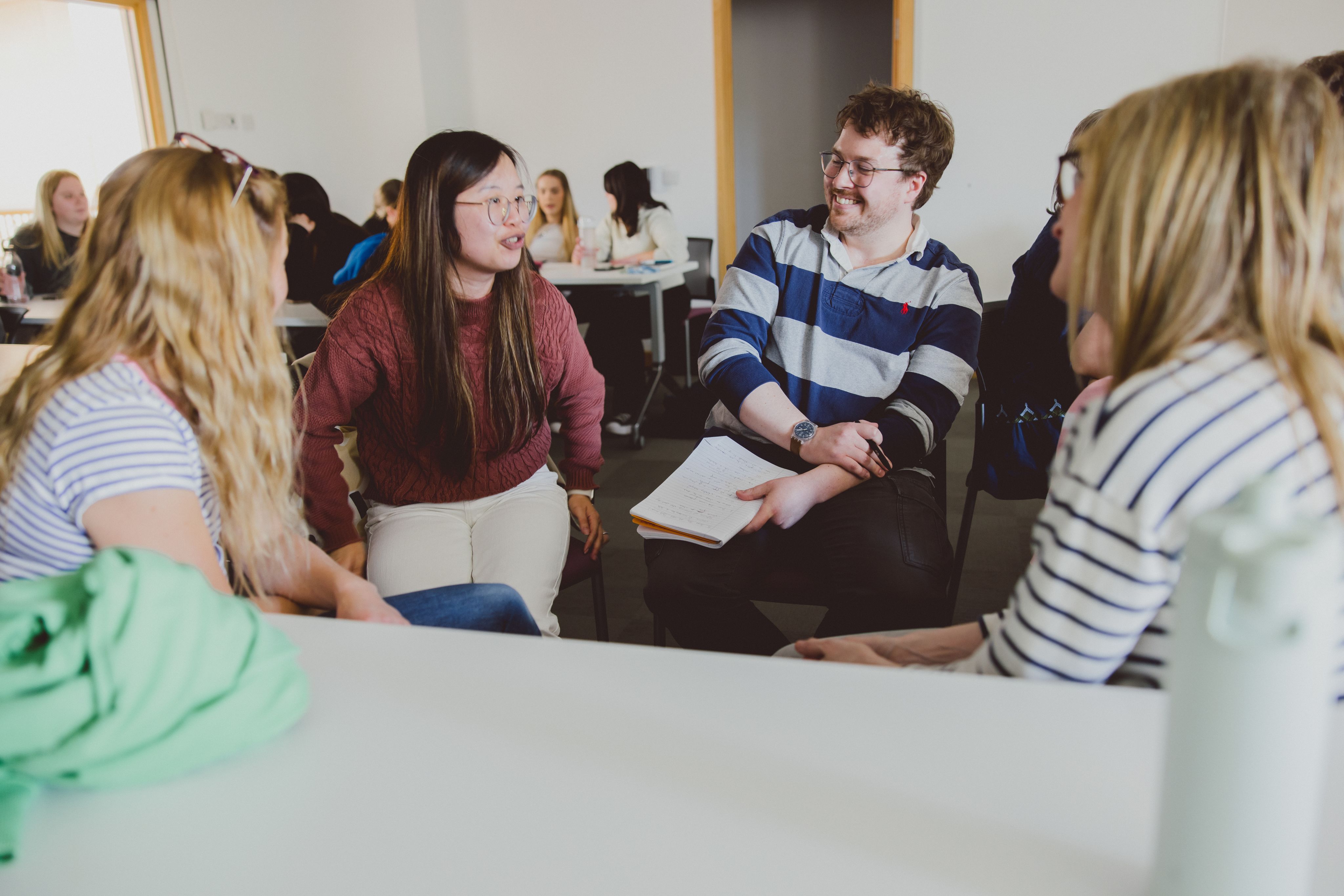
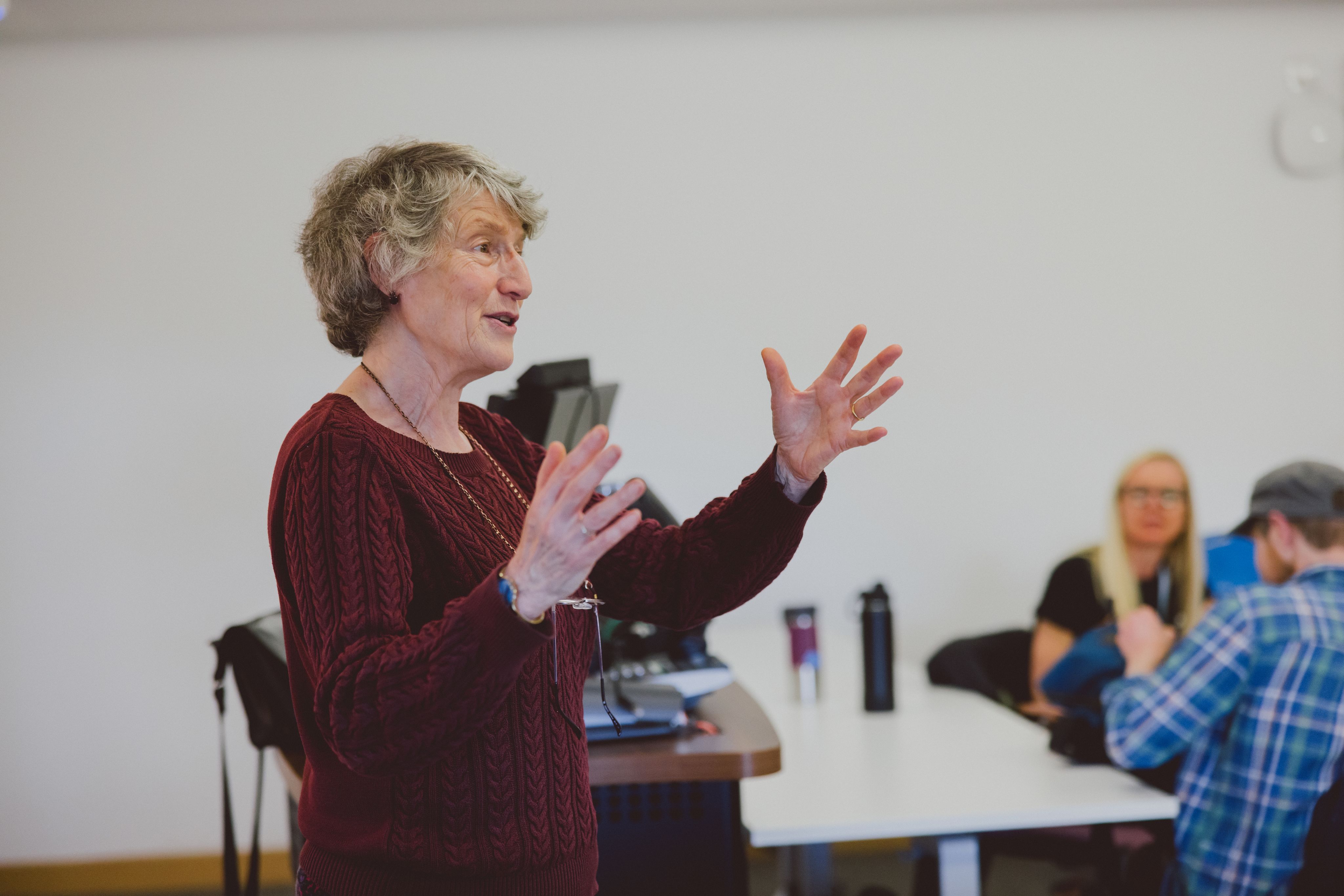
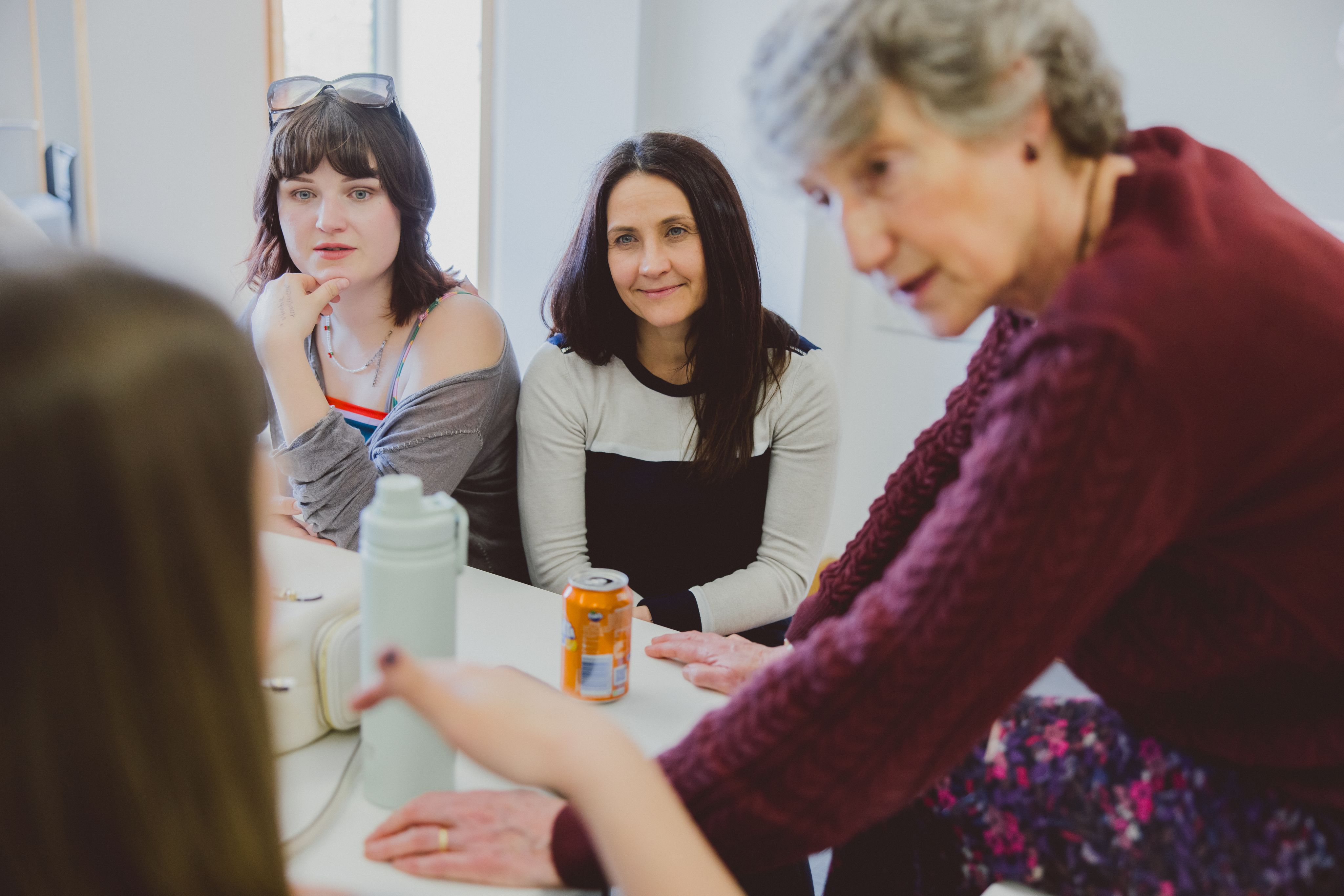
Find out more
Department of Psychosocial and Psychoanalytic Studies
Discover the amazing courses and research in the Department.
Study Psychodynamic Counselling and Psychotherapy at Essex
Find out more about our inspirational courses.
Sixty Stories
We’re celebrating 60 years of making change happen. 60 years of boldness and bravery from our students past and present. 60 years of creating change.

